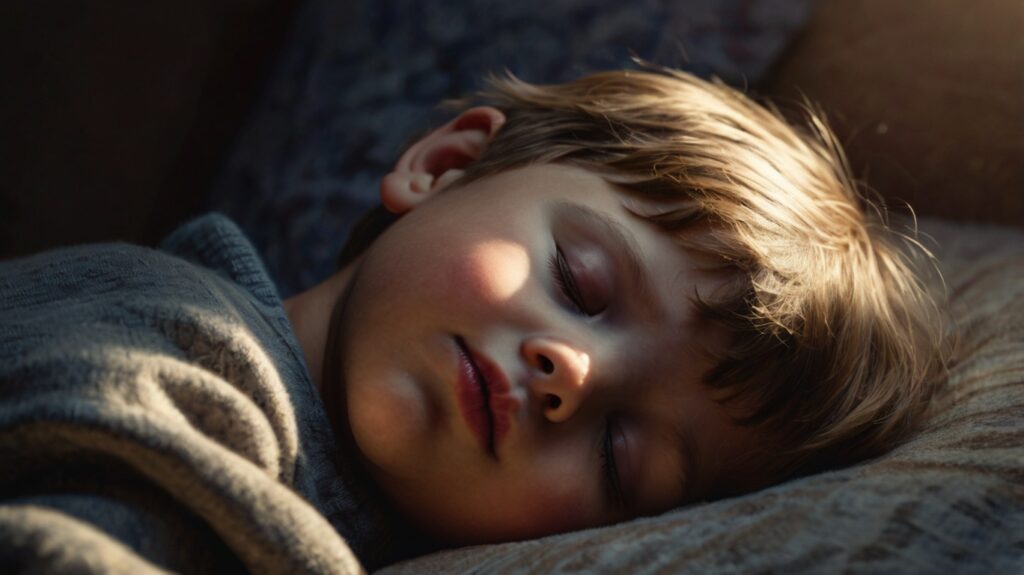The Impact of Blue Light on Sleep: What You Need to Know
Sleep is fundamental for good wellbeing. However, a considerable number of us battle to get sufficient sleep. One significant explanation? Blue light. This sort of light, discharged by screens and current lighting, upsets sleep. It impacts the body’s ordinary rhythms and makes falling asleep more perseveringly. In this article, we’ll research the impact of blue light on sleep, why it is significant, and the way in which you could defend your rest.
What Is Blue Light?
Blue light is a piece of the noticeable light range. It has a short frequency and high energy. The sun is the crucial wellspring of blue light, yet electronic devices like phones, tablets, and laptops also produce it. Driven and bright lights are extra sources.
During the day, the blue light assists us with the remaining alarm. It supports state of mind and further develops center. In any case, openness around evening time can make the contrary difference.
How Blue Light Affects Sleep
Blue light clearly impacts rest by impeding the body’s improvement of melatonin. Melatonin is a chemical that directs sleep. Regularly, melatonin levels ascend at night, flagging that now is the right time to slow down.
At the point when you use gadgets around evening time, blue light defers melatonin creation. This befuddles your body’s inside clock, otherwise called the circadian musicality. Subsequently:
- You feel less sluggish.
- Nodding off takes more time.
- Sleep quality reductions.
After some time, this disturbance can prompt constant sleep issues, similar to a sleeping disorder.
Common Sources of Blue Light
Blue light openness has expanded with the ascent of innovation. Here are the principal guilty parties:
- Cell phones and Tablets: Steady use, particularly around evening time, opens the eyes to extraordinary blue light.
- TVs: Staring at the television before bed can likewise postpone sleep.
- PCs and PCs: Many individuals work late, broadening screen time into the evening.
- Driven and Bright light bulbs: These lights are energy-productive yet emanate more elevated levels of blue light.
Despite the fact that these gadgets make life more straightforward, they can hurt sleep when utilized exorbitantly.
Long-Term Effects of Poor Sleep
The impact of blue light on sleep goes past inclination tired. Persistent lack of sleep can prompt serious medical problems, for example,
- Debilitated resistant framework.
- Expanded chance of coronary illness.
- Higher possibilities creating uneasiness or discouragement.
- Weight gain and metabolic issues.
sleep is indispensable for physical and psychological health. Understanding how blue light obstructs sleep is the most important move toward better sleep cleanliness.
Tips to Reduce Blue Light Exposure
Safeguarding your sleep doesn’t mean surrendering innovation. Little changes can have a major impact. How it’s done:
1. Limit Screen Time Before Bed
Expect to switch off gadgets no less than 1-2 hours prior to dozing. Utilize this opportunity to peruse a book, contemplate, or unwind.
2. Empower Night Mode
Most telephones and PCs have a “night mode” highlight. This decreases blue light by changing the screen’s variety tone to hotter tints.
3. Put resources into Blue Light Glasses
Unique glasses can impede or channel blue light. They are particularly useful in the event that you really want to work around evening time.
4. Utilize Warm Lighting
Supplant Drove or bright lights with warm, faint lighting at night. This establishes a more sleep accommodating climate.
5. Download Blue Light Channel Applications
Applications like f.lux or the inherent settings on gadgets can diminish blue light openness naturally founded on the hour of day.
6. Lay out a Sleep time Schedule
Make propensities that signal your body now is the right time to sleep. This can incorporate darkening lights, rehearsing profound breathing, or keeping away from caffeine around evening time.
Are All Blue Lights Bad?
Not all blue light is destructive. During the day, it’s really advantageous. Blue light openness in the first part of the day manages your circadian beat. It causes you to feel conscious and alert.
The issue emerges when blue light openness proceeds until quite a bit later. This disturbs the body’s regular beat, making it harder to nod off.
Blue Light and Children

Youngsters are especially defenseless against the impact of blue light on sleep. With the rising utilization of tablets, telephones, and gaming frameworks, kids frequently experience upset sleep. Guardians can help by:
- Setting screen time limits.
- Empowering open air play during the day.
- Making a sans tech sleep time schedule.
Great sleep propensities from the get-go advance better wellbeing and learning in youngsters.
The Role of Natural Light
Normal light openness during the day can balance the adverse consequences of blue light. Investing energy outside directs your circadian cadence. Hold back nothing 15-30 minutes of daylight day to day, particularly toward the beginning of the day.
Conclusion
The impact of blue light on sleep is a developing worry in the present computerized age. While innovation makes life helpful, overexposure to screens can hurt sleep wellbeing. Unfortunate sleep influences actual prosperity, mental clearness, and in general personal satisfaction.
Luckily, little changes can lessen blue light openness and further develop sleep. Restricting screen time, utilizing channels, and laying out a sleep time routine are straightforward yet viable techniques.
Keep in mind, great sleep is critical to a solid way of life. By getting it and overseeing blue light openness, you can appreciate better evenings and more empowered days.








